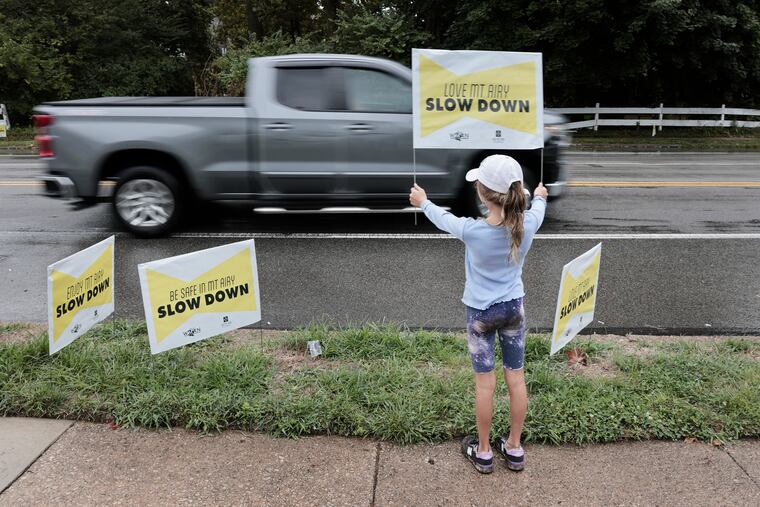Letters to the Editor | Oct. 23, 2022
Inquirer readers on Lincoln Drive and marijuana pardons.

Biased abortion coverage
While we appreciate the occasional commentaries with a pro-life viewpoint, we express our strong objection to the consistently biased — and sometimes outright false — Inquirer news coverage of the “abortion issue.”
The principal difference in the “pro-life”/“pro-choice” debate is recognizing the scientific reality and alleged rights of the child in the womb. The Inquirer news coverage continues to ignore this reality by refusing to publish photos of children killed by abortion — or even photos of children in the womb. An excellent example remains the iconic photo of Samuel Armas’ “Hand of Hope” extending from his mother’s womb during surgery at 21 weeks gestation.
We, in the pro-life movement, welcome the routine scrutiny that the Inquirer provides to a proposed law or a candidate regarding “exceptions,” such as unborn children with disabilities or whose lives began as a result of their father’s violent crime. However, your reporters fail to report on the lives of “hard cases,” such as Kathy Barnette, the former 2022 Republican candidate for U.S. Senate in Pennsylvania who was conceived in rape when her mom was 11. Equally biased, the Inquirer fails to provide hard case scrutiny of the extent of “pro-choice” laws or candidates, such as support for abortion in the ninth month of pregnancy, as John Fetterman has expressed in a recent CNN interview.
Another example is the Inquirer’s one-sided — and sometimes outright false — “medical reports” on how providing legal protection to children in the womb — or the availability of Catholic health care — will increase the risk of expectant mothers dying from the lack of treatment for miscarriage or ectopic pregnancy.
Finally, the Inquirer describes abortion as “health care.” This description means that the child in the womb is a disease or a tumor, rather than a living human being with a right to life.
Michael J. McMonagle, president, Pro-Life Coalition of Pennsylvania, paprolifecoalition@gmail.com
Lincoln Drive is what you get
Most traffic on hazardous routes like Lincoln Drive was supposed to be handled by expressways proposed from the 1940s through the 1970s.
Lincoln Drive’s traffic would’ve been mitigated by a Route 309 extension. A Cobbs Creek Expressway would have returned the Parkway to its neighborhoods. An east-bank Schuylkill Expressway would relieve I-76 and the river drives. Two crosstown expressways would supplement I-676. A Northeast freeway would have enabled a repurposed Boulevard.
Relax, car opponents. I’m pro-transit and don’t advocate these proposals, some of which seem crazy today. But reflexively opposing road capacity improvements has consequences. Foolishly under designing highways (like I-95 and I-476 around Chester) brings perpetual congestion, time and fuel waste, air pollution, rage, and accidents on alternate routes — without protecting nature or quality of life.
Dave Campbell, Bristol
Mass pardons for marijuana
Kyle Sammin’s Oct. 17 column criticized President Joe Biden for his compassionate mass pardon of federal marijuana offenders, arguing that norms and precedents must be upheld, leaving it to Congress to enact the drug law reforms that the vast majority of voters support. However, as Sammin notes, that has not happened. Nor can it while just one party is interested in governing and the other focused only on its crusade to seize permanent minority control by any means necessary, including violent insurrection.
Susan Saxe, Philadelphia
Join the conversation: Send letters to letters@inquirer.com. Limit length to 150 words and include home address and day and evening phone number. Letters run in The Inquirer six days a week on the editorial pages and online.